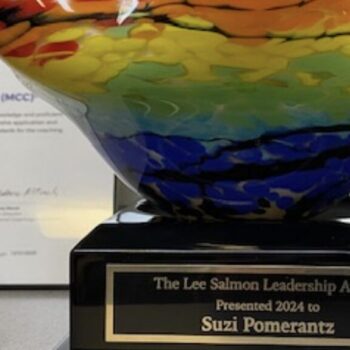
Spirituality and Coaching
Until recently there were two “third rails” in the field of professional coaching. These were topics that were never to be addressed during a coaching session—nor mentioned in any dialogue among coaches about the struggles they are having in their work. One of these “third rail” themes is money and finances. This is still a forbidden topic—which is one of the reasons why we will soon be devoting an entire issue to this topic. The second forbidden topic has been religion and spirituality. While many founders of the field of professional coaching came to their work as coaches with deeply held religious beliefs, these beliefs were not to be shared with their coaching clients nor were these beliefs to influence the content and strategies of their coaching sessions (unless they have been contracted to do coaching precisely because of their religious beliefs).
This is now all changing regarding spirituality. It is no longer a third rail. For instance, at a summit conference held last year in the state of Maine, senior-level coaches brought the matter of spirituality and coaching to center stage in their deliberations. Furthermore, many of the most successful executive coaches speak about and write about ways in which their own spiritual orientation – be it Christian, Jewish or Buddhist—has informed their practices as a coach. The fundamental reasons that they are serving as a coach are often informed by their religious beliefs or spiritually based values.
It is time for us to look more deeply into what spirituality means, how it impacts the world in which we are engaged as coaches, and the broader perspective we must take in welcoming and entertaining diverse spiritual practices and values. This deeper exploration is particularly important given what is occurring in our deeply troubled mid-21st Century world. This section of the Coach Quad is devoted to these important matters regarding spirituality and coaching.
The first essay written by Veronique Pioch Eberhart (a sociologist specializing in the study of spirituality and coaching) concerns the fundamental question: what is spirituality and how does it relate to the field of professional coaching.
Spirituality and Professional Coaching: An Introduction
The second essay concerns the way someone who considers himself to be a “secularist” deals with life experiences that seem to call for a spiritual perspective.
The third essay is the transcript of an interview with Julio Olalla—one of the major thought-leaders in the field of professional coaching and an exceptionally wise guide to the world of spirituality and the making of meaning (ontology).
The fourth essay concerns the role played by spirituality in the life of a community. How are “habits of the heart” formed by and manifest in specific spiritual traditions?
Jeannine Sandstrom and Lee Smith are two of the major contributors over the past three decades to our understanding of effective leadership practices. Their Legacy Leadership training program has been widely used with great success. Both Sandstrom and Smith come to their work with strong religious convictions. They have offered insights regarding how leadership can be particularly effective when a religious (and more broadly spiritual) perspectives has been brought into the practice of leadership. The author of this essay builds on the work of Sandstrom and Smith in suggesting ways in which spirituality might be incorporated in their five best practices.
- Posted by William Bergquist
- On November 11, 2023
- 0 Comment


Leave Reply